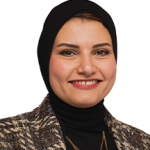This study investigates what predicts the uptake of preventive health behavior (PHB) during COVID-19, bringing to the fore economic and psychological determinants. We provide novel evidence that through affecting psychological well-being, economic well-being can affect PHB. Exploiting a panel survey dataset of four North African countries for November 2020–August 2021, we construct a psychological well-being index and develop a structural equation model that addresses endogeneity in the PHB, economic and psychological well-being, and COVID-19 risk perception relationships. Our estimates reveal vast heterogeneity in individual responses to different PHB determinants across countries and by behavior type. Psychological well-being had the strongest positive effect on the likelihood of physical distancing in Egypt and Sudan and of wearing masks in Morocco, Sudan, and Tunisia. Psychological well-being in turn was negatively affected by decreased food consumption and higher economic anxiety in all four countries. Psychological well-being was also lower for unpaid family workers in Egypt and Sudan and the unemployed in Egypt, Morocco, and Tunisia. Handwashing, a less publicly visible practice, was directly related to the perceived risk of COVID-19 and neighborhood compliance. Gender, age, and education effects varied across countries and by PHB type.
ملخص
تبحث هذه الدراسة في تنبؤات استيعاب السلوك الصحي الوقائي خلال جائحة فيروس كورونا (كوفيد-19)، مع تسليط الضوء على المحددات الاقتصادية والنفسية. نقدم أدلة جديدة على أنه من خلال تأثر الرفاه النفسية، قد يؤثر الرفاه الاقتصادي على السلوك الصحي الوقائي. وباستخدام مجموعة بيانات استقصائية لأربعة بلدان في شمال إفريقيا في الفترة من نوفمبر 2020 إلى أغسطس 2021، نُعِد مؤشر الرفاه النفسي ونطور نموذج معادلة هيكلي يتناول علاقات تأثير المتغيرات الداخلية في السلوك الصحي الوقائي، والرفاه الاقتصادية والنفسية، وإدراك مخاطر فيروس كورونا (كوفيد-19). تكشف تقديراتنا عن عدم تجانس واسع النطاق في الاستجابات الفردية لمختلف محددات السلوك الصحي الوقائي عبر البلدان وبحسب نوع السلوك. كان للرفاه النفسي أقوى تأثير إيجابي على احتمالية التباعد الجسدي في مصر والسودان وارتداء الكمامات في المغرب، والسودان، وتونس. وقد تأثر الرفاه النفسي في المقابل سلبًا بانخفاض استهلاك الغذاء وزيادة القلق الاقتصادي في البلدان الأربعة. كما كان الرفاه النفسي أقل بالنسبة للعاملين بغير أجر في الأسرة في مصر والسودان والعاطلين عن العمل في مصر، والمغرب، وتونس. وكان غسل اليدين، وهي ممارسة تقل معرفة العامة بها، مرتبطًا مباشرةً بالمخاطر المتصورة لفيروس كورونا (كوفيد-19) والتزام المنطقة. واختلفت تأثيرات النوع الاجتماعي، والعمر، والتعليم عبر البلدان وبحسب نوع السلوك الصحي الوقائي.

Research Associates
Amira El-Shal
Acting Associate Director of Research, J-PAL MENA

Research Associates
Eman Moustafa
Research Manager, African Export-Import Bank (Afreximbank)


